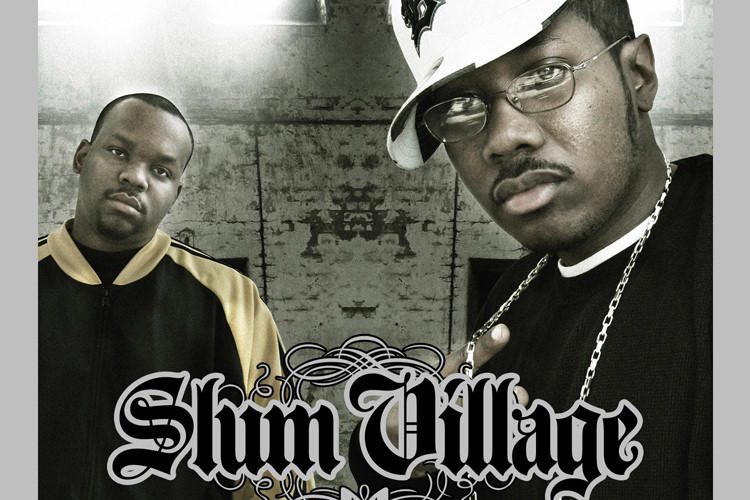Slum Village is one of those revolving door groups whose members on any given release are subject to change. Their most famous member, Jay Dee, departed after their acclaimed first album, though, and things haven’t quite been rosy since then. Jay Dee went along to collaborate with Madlib and contribute to Common’s “Be,” helping out only marginally on 2002’s “Trinity.” In his place was Elzhi, who joined Baatin and T3 and has stayed. Baatin recently bowed out for their most recent “Detroit Deli,” which brings us up to date. T3 is the only original member around, and as of the new self-titled album, the numbers have dwindled to a precious two.
Slum Village’s extended family includes Young R.J. and Black Milk, collectively known as B.R. Gunna. Together, they provide the majority of the production for “Slum Village,” and this production is the highlight of the album. Each song is tightly constructed with heavy drums and various aesthetically pleasing loops stretched across. Young RJ’s work on “05” represents the best on the album, a staggering blend of live instruments led by a wonderful variety of horns. RJ’s “Def Do Us” has uneven drum kicks and an abstract vocal sample, but the loop in the slight background unites the opposing elements with ease. Black Milk lends a sparse drum track to “Set It,” and the detached quality of the beat has the song ready for underground ears in search of something danceable. Here, T3 and Elzhi rhyme until they’re out of breath, both delivering unexpected and forceful performances.
The duo’s rhymes consistently leave something to be desired. When truly inspired, the words match the effectiveness of the production, as on the stiffly catchy “1,2,” which boasts both rhymes perfectly in time with the beat and in double-time, both equally effective. These moments seem to be brought out by the dopest production on the album, and the places where the music lags are immediate skip material. The lifeless “Multiply” is another sex song without unique or redeeming qualities, the kind that you’ve already heard before you listen to it.
Odd as it sounds, T3 and Elzhi are the weak spots on their own album. Neither brings anything interesting to most songs, be it subject matter or style. They love their women, certainly, but there is no special reason that we need to hear about it. Instead of being specific in their rhymes, the “love” songs are only general reminders to the audience that they like females. They kick verses in conversational form and as classically boastful rappers, but these words are rarely compelling. Both sound like they are concentrating more on riding along with the beat and making their words make sense than anything else, and any artistic ingenuity is lost in the strict and straightforward form of each verse. Upon listening to this record multiple times, nothing is memorable. They aren’t abrasive to the point of taking my attention away from the beat, which I am thankful for, but the presence of the two doesn’t actually enhance the experience all that much, which defeats the purpose of rapping.
The length of the album is an asset to the experience, because thirteen tracks is enough to fit a satisfying amount of music, but neither the rapping nor the production gets too old. Slum Village has always been more about the vibe they exude than any groundbreaking, or even above average, lyricism. This record achieves that feel adequately, mostly through the absorbing beats and de-clawed choruses that are a little more hit than miss. Aside from the obvious lyrical deficiencies, it is a rather enjoyable album with nothing that will offend or especially disappoint window shoppers.
“Fantastic” has T3 reminiscing about the “glory days” when the original Slum Village was coming up. This, coupled with the ordinary but fitting piano loop, is quite endearing, but Elzhi’s verse concerns a situation with a female, deviating from the concept of the track entirely. This encapsulates the trouble with the record. The two have chemistry only to the point that you accept the fact that they are in a group together. Neither is a good enough lyricist to strike out by himself, so playing off of each other is the only way to generate the energy that cannot be found in each individual’s words. They do not do this, and since the production is nice but not exquisite, “Slum Village” is quite forgettable.

